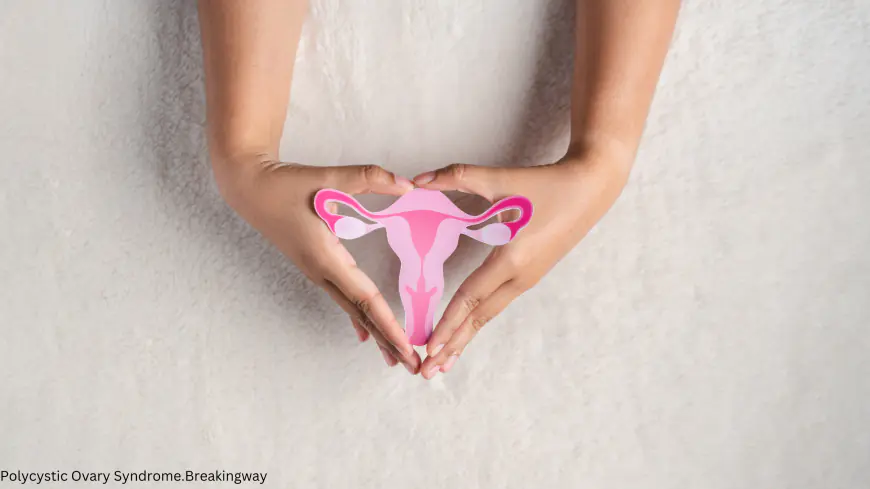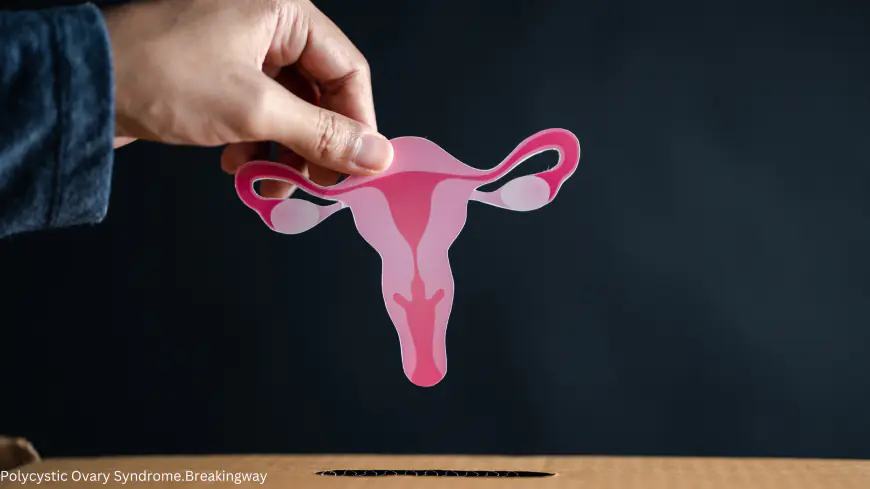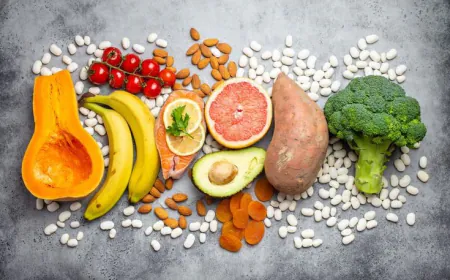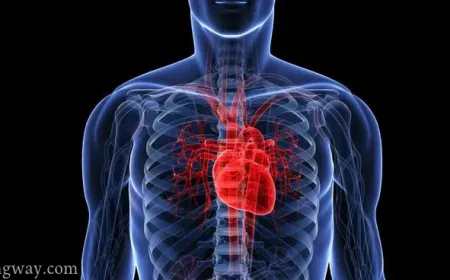Understanding the Natural Menstrual Cycle: Causes of Polycystic Ovary Syndrome (PCOS) and the Key Differences Between PCOS and Ovarian Cysts
The natural menstrual cycle, PCOS causes, and how it differs from ovarian cysts. Get clear insights with Breaking Way Health.

polycystic Ovary Syndrome (PCOS) is a common hormonal disorder that affects women of reproductive age. This condition is characterized by irregular menstrual cycles, elevated levels of male hormones (androgens), and the presence of small cysts on the ovaries. Let's dive into the natural menstrual cycle, the impact of PCOS on this cycle, and the factors contributing to the development of this syndrome.
The Normal Menstrual Cycle
Understanding the normal menstrual cycle helps in grasping the changes caused by PCOS. The menstrual cycle is controlled by key hormones such as estrogen and progesterone, and itconsists of three main phases:
- Follicular Phase : starts on the first day of your menstrual period. The ovaries stimulate several small follicles, each containing an immature egg. These follicles produce estrogen, preparing the uterine lining for potential pregnancy.
- Ovulation: Mid-cycle, there is a sharp rise in luteinizing hormone (LH), leading to the release of a mature egg from the most developed follicle. This egg travels through the fallopian tube, where it may be fertilized.
- Luteal Phase: Post-ovulation, the empty follicle transforms into the corpus luteum, which secretes progesterone to thicken the uterine lining. If fertilization doesn’t occur, progesterone levels drop, leading to menstruation and the start of a new cycle.
What Happens in PCOS?
In women with PCOS, the hormonal imbalance disrupts this normal cycle. Multiple follicles develop in the ovaries, but none mature completely. This leads to the formation of small cysts, giving the syndrome its name.
Causes of PCOS
The exact cause of PCOS is still unknown, but several factors may contribute to its development:
- Genetic Predisposition: A family history of PCOS increases the likelihood of developing the condition. Women with first-degree relatives (mother or sister) who have PCOS are at a higher risk.
- High Androgen Levels: Elevated levels of androgen (male hormone) can prevent the ovaries from releasing eggs regularly, contributing to PCOS.
- Insulin Resistance: Insulin resistance, where the body’s cells don’t respond effectively to insulin, is common in PCOS. High insulin levels can increase androgen production, interfering with ovulation.
- Lifestyle Factors: Poor diet, lack of physical activity, obesity, and chronic stress can exacerbate the symptoms of PCOS.
- Elevated Prolactin Levels: High levels of prolactin, a hormone responsible for milk production, can disrupt the hormonal balance, affecting ovulation and potentially leading to PCOS.

The Difference Between Polycystic Ovary Syndrome (PCOS) and Ovarian Cysts
- Polycystic Ovary Syndrome (PCOS):
Definition: PCOS is a common hormonal disorder affecting women of reproductive age, characterized by a combination of symptoms.
Symptoms: It involves elevated levels of male hormones (androgens), irregular menstrual cycles, and difficulties with pregnancy. Additional symptoms might involve weight gain, acne, and excessive hair growth.
Causes: The exact cause of PCOS is unknown, but it is associated with factors such as insulin resistance, elevated androgen levels, and genetic predisposition.
Complications: PCOS can lead to long-term health issues, such as type 2 diabetes, heart disease, and infertility.
- Ovarian Cysts :
Definition: Ovarian cysts refer to small fluid-filled sacs that develop on or inside the ovaries. They are not necessarily part of PCOS.
Symptoms: Ovarian cysts often do not cause noticeable symptoms and may be discovered incidentally during an ultrasound.
Causes: Cysts can result from various factors, such as a follicle not properly releasing an egg or not being absorbed by the body. They typically do not involve the systemic symptoms seen with PCOS.
Complications: Most ovarian cysts are benign and resolve on their own, but in some cases, they may cause pain or require surgical intervention if they are large or problematic.
Polycystic Ovary Syndrome is a complex condition with a variety of symptoms and causes. Early diagnosis and management are key to reducing its impact on a woman's reproductive health. Understanding the role of lifestyle changes, medications, and other treatment options can help manage PCOS effectively.
What's Your Reaction?




















































